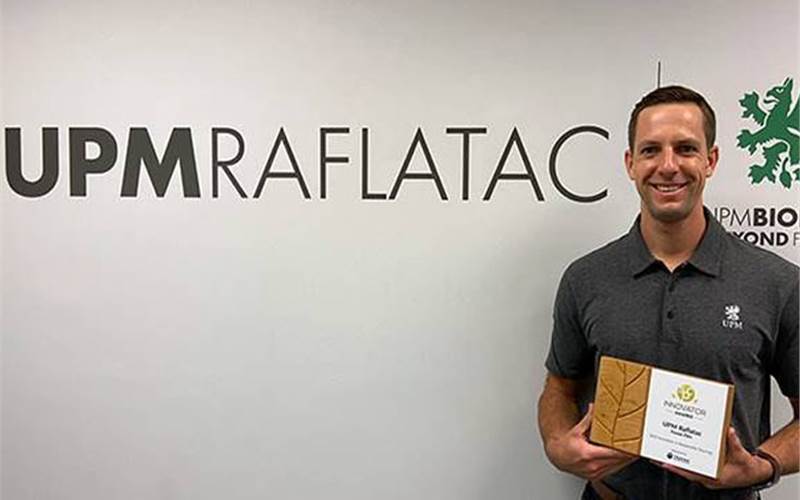UPM Raflatac label material wins innovation award
UPM Raflatac’s Forest Film label material has received the 2020 Innovation in Responsible Sourcing Award from the Sustainable Packaging Coalition (SPC). The announcement came on 20 September at the SPC Innovator Awards ceremony as part of this year’s SPC Advance virtual event. Forest Film is the world’s first polypropylene film label material derived entirely from wood-based sources based on mass balance approach and brings UPM Raflatac’s vision of “labelling a smarter future beyond fossils” to life.
05 Oct 2020 | By Rahul Kumar
“Forest Film deserves attention for being a notable introduction of bio-based polypropylene with a well understood feedstock and an assurance mechanism for responsible sourcing,” said Adam Gendell, associate director of the Sustainable Packaging Coalition. “It is a significant advancement in the field of bio-based plastics, and we feel it’s earned its status as the winner of Innovation in Responsible Sourcing in the 2020 SPC Innovator Awards.”
The innovative sourcing begins with UPM Raflatac’s sister company, UPM Biofuels, who convert pulp production residue called crude tall oil from sustainably managed forests into renewable naphtha, a drop-in raw material for the chemical industry. This product, called UPM BioVerno, is sent to a resin supplier and then a film supplier to convert it into the filmic face material UPM Raflatac then manufactures into the laminate label material known as Forest Film.
It is an International Sustainability and Carbon Certification (ISCC) PLUS-certified product, meaning it uses sustainable resources to replace an equivalent amount of fossil resources in the production process — the mass balance approach. Forest Film products are proven to deliver savings on greenhouse gas emissions. When a comparison is made between a standard label construction and Forest Film, the carbon footprint, including biogenic carbon, significantly reduces emissions up to 66%.
Forest Film has identical performance to traditional plastic film label materials. It is now available as either polypropylene or polyethylene, in both clear and white films for a number of packaging end-uses.












 See All
See All